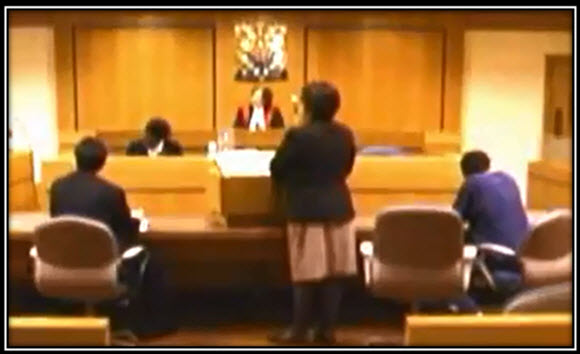The executive director of the Canadian Research Institute for Law and the Family, John-Paul Boyd, has published a statement online setting out the rights and responsibilities of people who are involved in Canadian court proceedings without a lawyer to represent them. It’s worth reading.
People appearing in court without a lawyer are sometimes called “self-represented litigants”. The statement explains what self-represented litigants have a right to expect from court staff, lawyers and judges, and it outlines the basis for those rights. But rights come with responsibilities, and it also explains the obligations of self-represented litigants.
This eNews will set out some of the rights of self-represented litigants that Mr. Boyd identifies, and the next eNews will discuss the flip side - the obligations of people appearing in court without a lawyer. When this article talks about a “party” it means a person involved in a court proceeding.
What do you have the right to expect from lawyers representing another person involved in your court matter? Mr. Boyd explains that lawyers should treat you with courtesy and respect, return your emails, letters and telephone calls reasonably promptly, and keep their word. You have the right to complain to the Law Society of British Columbia if you believe a B.C. lawyer has treated you improperly.
What can you expect from a judge? First, a judge is expected to manage the steps in your court proceeding fairly. However, judges sometimes have to impose time limits to ensure that both parties have enough time to present their cases and that other cases can proceed as scheduled. Next, when a decision is needed, a judge is expected to make fair and even-handed decisions after listening to both parties. Mr. Boyd also explains that judges sometimes need to ask questions to help you get to the legal issues in your case and limit your evidence to what is relevant to those legal issues. He points out that you shouldn’t mistake these actions for rudeness.

Judges should also give you basic information about the court procedures and law that apply to your case, although they cannot give you legal advice and must be fair to the other party. They may give you directions on procedure, the type of evidence that can be presented and the form of questioning that is permitted. Judges must follow the rules of court and the law, although in some types of cases they have some flexibility to adapt procedures to meet the needs of the parties. While procedure in criminal trials is generally not flexible, in Small Claims and family court trials B.C. Provincial Court judges may be able to use simplified procedures, especially if neither party has a lawyer.
If you are unhappy with the decision of a Provincial Court judge or judicial justice you may have the right to appeal it to another court. A trial judge’s decision may be overturned if the judge made a mistake. If you believe a Provincial Court judge or judicial justice has behaved improperly you have the right to complain to the Chief Judge who chairs the Judicial Council.
Finally, what should you expect from court staff? You should expect to have your business processed accurately and as promptly as the volume of work and staffing levels permit. The people who work in B.C. courthouses are employees of the provincial government. They generally work extremely hard and are dedicated to serving the public. Court staff should treat you politely and tell you the steps necessary to complete court processes, but they cannot give you legal advice.
John-Paul Boyd is the executive director of the Canadian Research Institute for Law and the Family, a non-profit organization associated with the University of Calgary. His statement of the Rights and Responsibilities of Self-Represented Litigants explains these rights and what they’re based on in greater detail. Read it on Clicklaw Wikibooks.

